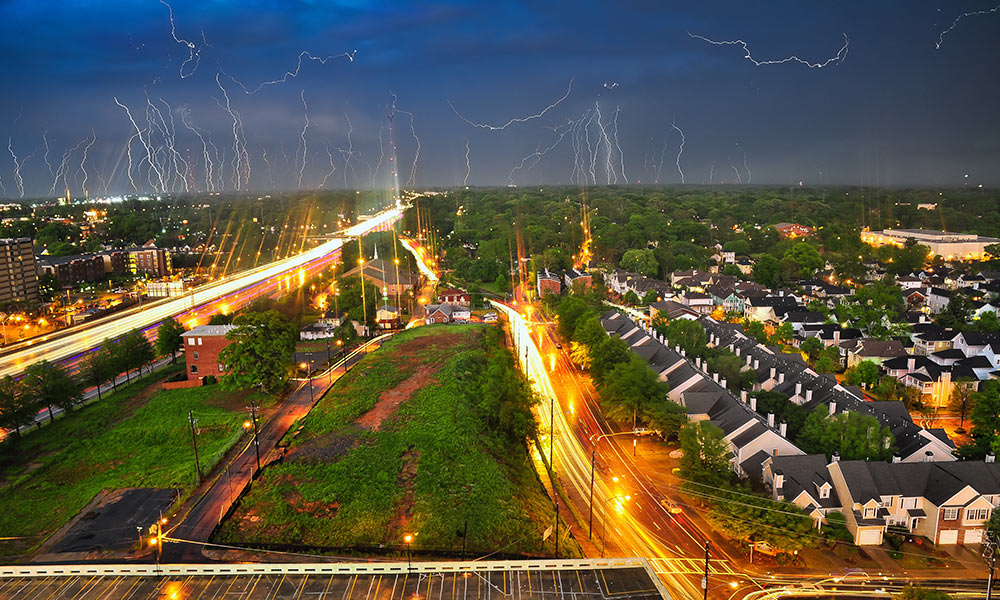Atlanta’s rainy season can be tough on more than just your lawn. When heavy storms roll in and the ground becomes saturated, excess water around your home can start causing problems where you least expect them.
Poor drainage doesn’t just erode soil or flood walkways. Over time, it can shift your foundation, stress underground plumbing, and create a chain reaction of issues throughout your home. Knowing how water moves around your property, and how to spot early warning signs, can help you avoid expensive plumbing repairs.
What Happens When Water Doesn’t Drain Properly?
In older neighborhoods like Grant Park, Kirkwood, and East Atlanta, many homes are built on clay-heavy soil that drains slowly. During heavy spring storms, water can collect around the foundation, leading to:
- Soil movement that stresses underground pipes
- Foundation cracks that allow water to seep indoors
- Increased pressure on basement walls and slab foundations
Even slight foundation movement can disrupt your plumbing system. Pipes are rigid, and when the ground shifts, they can crack, separate, or become misaligned.
Plumbing Problems Caused by Foundation Shifts
Foundation and plumbing issues often develop together. Damage might not be visible right away, but some early signs include:
- Gurgling toilets or slow drains
- Sewer odors near the home or in the yard
- Cracks in interior walls or uneven flooring
- Water pooling around floor drains or in the basement
If you’re noticing any of these systems in your home, our team of expert plumbers can help. We use high-resolution cameras to visually inspect sewer lines and identify damage from soil movement without digging up your yard.
Drainage Issues Start Outside
Your home’s exterior plays a major role in protecting what’s inside. Poor yard drainage can overwhelm even the most reliable plumbing system.
Here’s a few signs to watch out for:
- Gutters or downspouts releasing water too close to the foundation
- Yard grading that directs water toward the home instead of away
- Standing water in flower beds, walkways, or patios
- Damp basements or white mineral stains on concrete walls
Drainage and plumbing are closely connected. If water is regularly pooling near your foundation after it rains, your system may need an upgrade.
Prevention Is Key
There’s no universal solution for home drainage problems, but a few protective measures can make a big difference:
- Extend downspouts to direct water away from your home
- Keep gutters clean and free of debris
- Install French drains or catch basins to manage runoff
- Add a sump pump if your home is prone to flooding
- Monitor plumbing performance after major storms
If you’re already working through your seasonal home maintenance checklist, this is the perfect time to check up on your plumbing system. Our Spring Plumbing Checklist offers more tips, including how to inspect fixtures, outdoor spigots, and your home’s water heater.
Concerned About Water Around Your Home? Let’s Fix It.
When water isn’t draining properly, it’s not just a nuisance. It’s a risk to your home’s foundation and plumbing system. If you’re seeing signs of water pooling, cracks, or slow drains, it’s worth taking a closer look.
Schedule a service appointment with Fix & Flow today. We’ll help you understand what’s happening and recommend the right fix, before small problems become big ones.
